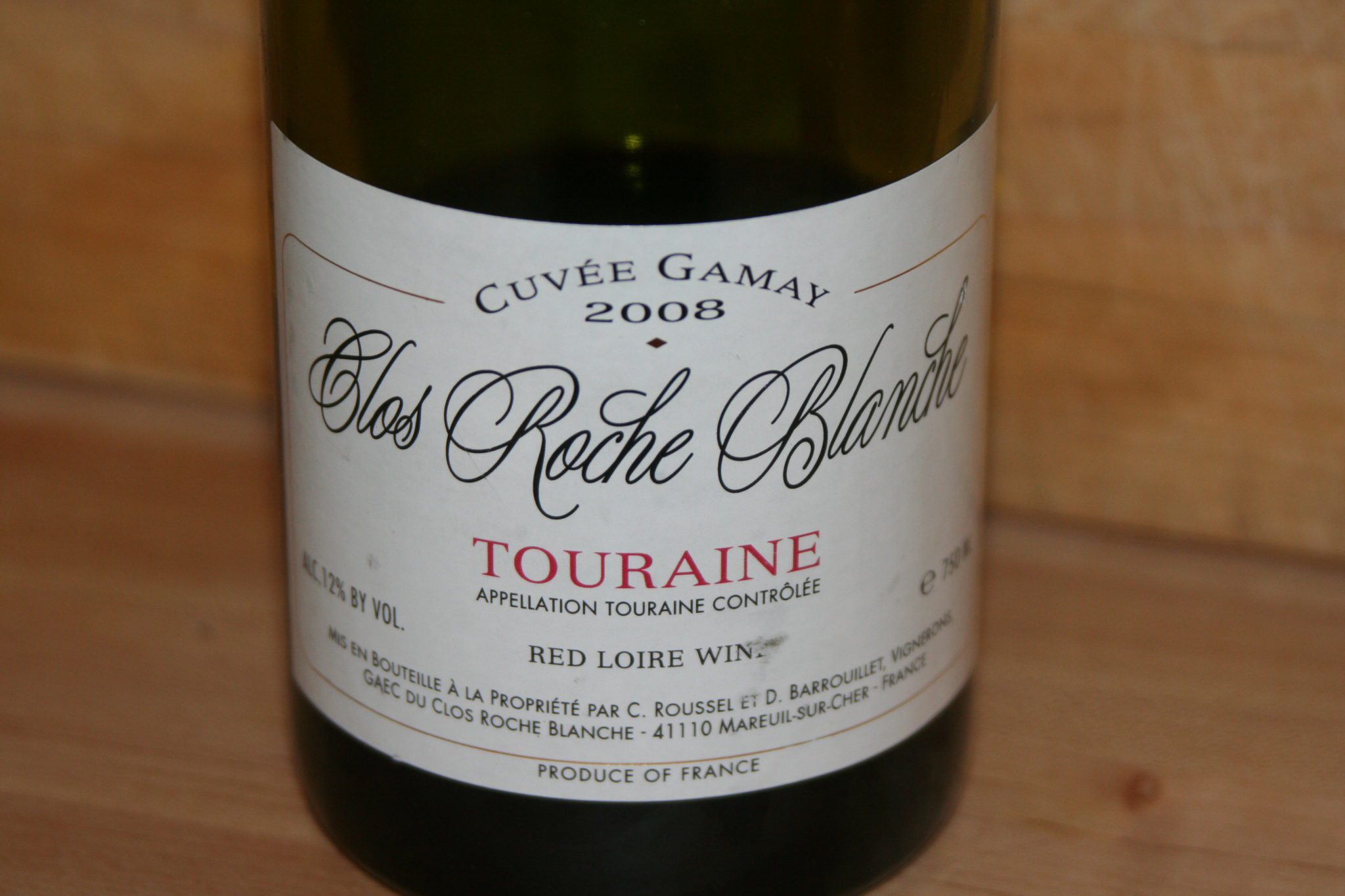When a wine and its fruit are born from a low yield program, organically farmed, raised in vineyards planted at the end of the 19th century, hang from old vines, retail around $15, hail from a Loire Valley appellation, and find their way to the US as a Louis/Dressner Selection, it gets my attention. This fusion of vinous genetics brought me face to face with the 2008 Clos Roche Blanche Touraine Gamay which lives up to expectations as a wine of unique character, finesse, and richness, flashing its seductive food friendly qualities and manageable 12% alcohol to earn its righteous place on the dinner table.
 The winery’s program is built around multiple varietals, and after having some experience with Clos Roche Blanche Sauvignon Blancs, this successful Gamay now underscores winemaker/grower agility for me. Here is what Louis/Dressner Selections has to say:
The winery’s program is built around multiple varietals, and after having some experience with Clos Roche Blanche Sauvignon Blancs, this successful Gamay now underscores winemaker/grower agility for me. Here is what Louis/Dressner Selections has to say:
The vineyards of Clos Roche Blanche were planted on the Touraine hills bordering the Cher river by the Roussel family at the end of the 19th century and have remained in the family since. Catherine Roussel took over this 28-hectare estate in 1975 from her father, and was later joined by Didier Barrouillet, who tends the vineyards and makes the wine. Both are enthusiastic proponents of non-interventionist winemaking.
Their soil is poor, mainly clay with flint over a limestone subsoil. The varietals grown are Cabernet (Sauvignon and Franc), Gamay, Côt (or Auxerrois, the grape of Cahors) and Sauvignon Blanc. Roussel and Barrouillet keep yields low by maintaining old vines, using organic fertilizers in moderation and growing grass between and plowing under the rows.
They converted the vineyards to organic farming and, with the 1995 vintage, received the official “organic agriculture” accreditation. The vines are treated with copper and sulfur solutions, and plant decoctions (a mixture of nettles and other herbs) used in biodynamic viticulture
The 2008 version of the Gamay has a nose consisting of black cherry, also some redder berry fruit, and while a bit of sweet candy notes comes through, it does not dominate. After 15 minutes in the glass, the berry aromas make room for wafts of sage brush, pepper spice, and flowers that added some earthy grounding to the luscious fruit. This Gamay has a remarkably rich mouthfeel without the anticipated density or fullness (know what I mean?), and it offers great extraction and depth of fruit without any associated massive weight. The wine finishes medium long, but never in an overpowering way that gets in the way of the food.
We paired it with a fowl dish heavily treated with rosemary and garlic. The wine and food knit together perfectly, almost as if we had tasted in advance to discover the wine and food’s blood type match. Instead, the perfect matrimony was nothing more than stroke of luck. While the wine could keep me amused and focused drunk all by itself, pouring it without some herbed fowl, lighter meats, or stronger fish would be akin to watching a talented Rockette dance alone on the Radio City Music Hall stage, all night long.